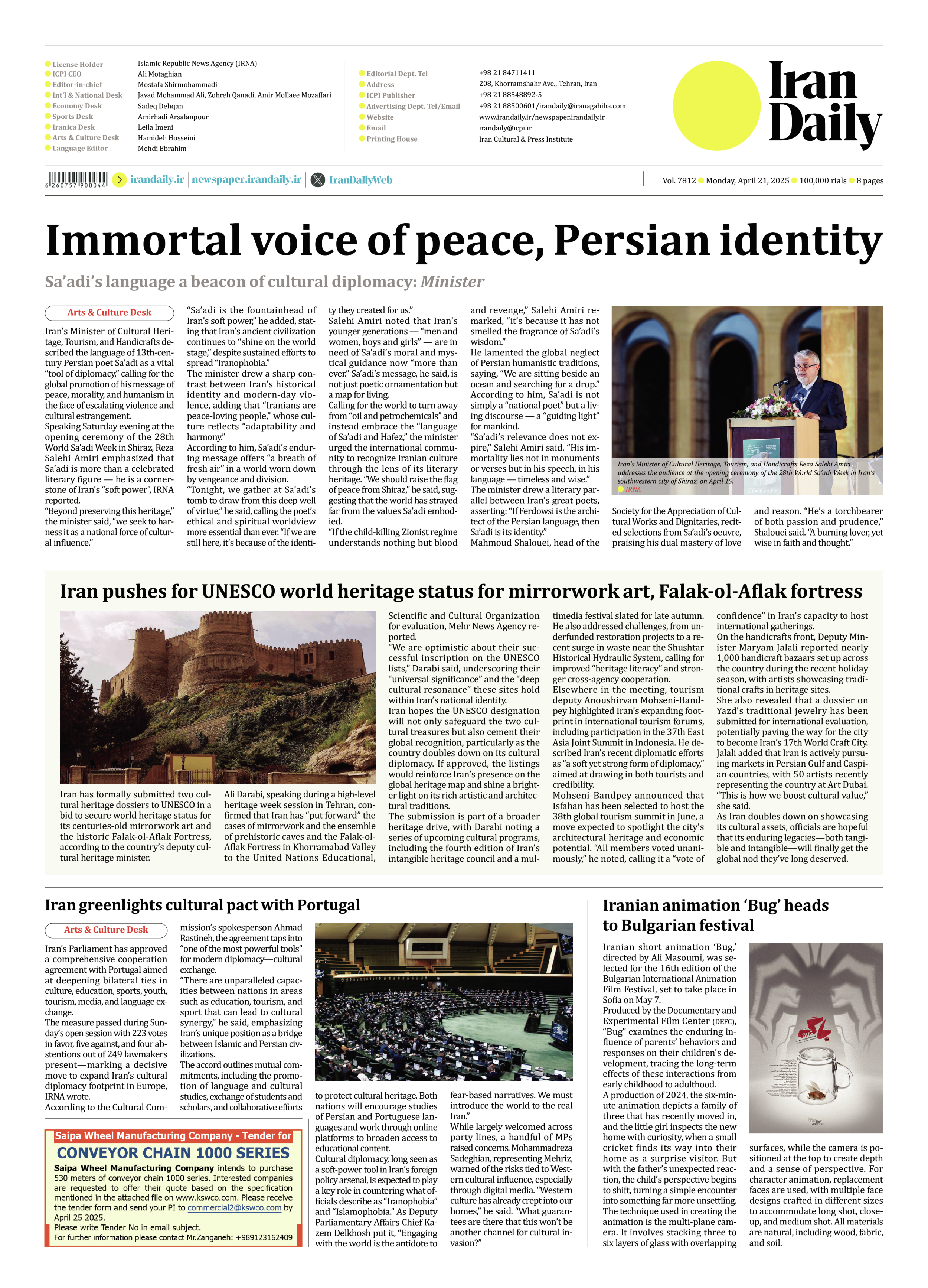
Immortal voice of peace, Persian identity
Sa’adi’s language a beacon of cultural diplomacy: Minister
Iran’s Minister of Cultural Heritage, Tourism, and Handicrafts described the language of 13th-century Persian poet Sa’adi as a vital “tool of diplomacy,” calling for the global promotion of his message of peace, morality, and humanism in the face of escalating violence and cultural estrangement.
Speaking Saturday evening at the opening ceremony of the 28th World Sa’adi Week in Shiraz, Reza Salehi Amiri emphasized that Sa’adi is more than a celebrated literary figure — he is a cornerstone of Iran’s “soft power”, IRNA reported.
“Beyond preserving this heritage,” the minister said, “we seek to harness it as a national force of cultural influence.”
“Sa’adi is the fountainhead of Iran’s soft power,” he added, stating that Iran’s ancient civilization continues to “shine on the world stage,” despite sustained efforts to spread “Iranophobia.”
The minister drew a sharp contrast between Iran’s historical identity and modern-day violence, adding that “Iranians are peace-loving people,” whose culture reflects “adaptability and harmony.”
According to him, Sa’adi’s enduring message offers “a breath of fresh air” in a world worn down by vengeance and division.
“Tonight, we gather at Sa’adi’s tomb to draw from this deep well of virtue,” he said, calling the poet’s ethical and spiritual worldview more essential than ever. “If we are still here, it’s because of the identity they created for us.”
Salehi Amiri noted that Iran’s younger generations — “men and women, boys and girls” — are in need of Sa’adi’s moral and mystical guidance now “more than ever.” Sa’adi’s message, he said, is not just poetic ornamentation but a map for living.
Calling for the world to turn away from “oil and petrochemicals” and instead embrace the “language of Sa’adi and Hafez,” the minister urged the international community to recognize Iranian culture through the lens of its literary heritage. “We should raise the flag of peace from Shiraz,” he said, suggesting that the world has strayed far from the values Sa’adi embodied.
“If the child-killing Zionist regime understands nothing but blood and revenge,” Salehi Amiri remarked, “it’s because it has not smelled the fragrance of Sa’adi’s wisdom.”
He lamented the global neglect of Persian humanistic traditions, saying, “We are sitting beside an ocean and searching for a drop.” According to him, Sa’adi is not simply a “national poet” but a living discourse — a “guiding light” for mankind.
“Sa’adi’s relevance does not expire,” Salehi Amiri said. “His immortality lies not in monuments or verses but in his speech, in his language — timeless and wise.”
The minister drew a literary parallel between Iran’s great poets, asserting: “If Ferdowsi is the architect of the Persian language, then Sa’adi is its identity.”
Mahmoud Shalouei, head of the Society for the Appreciation of Cultural Works and Dignitaries, recited selections from Sa’adi’s oeuvre, praising his dual mastery of love and reason. “He’s a torchbearer of both passion and prudence,” Shalouei said. “A burning lover, yet wise in faith and thought.”







